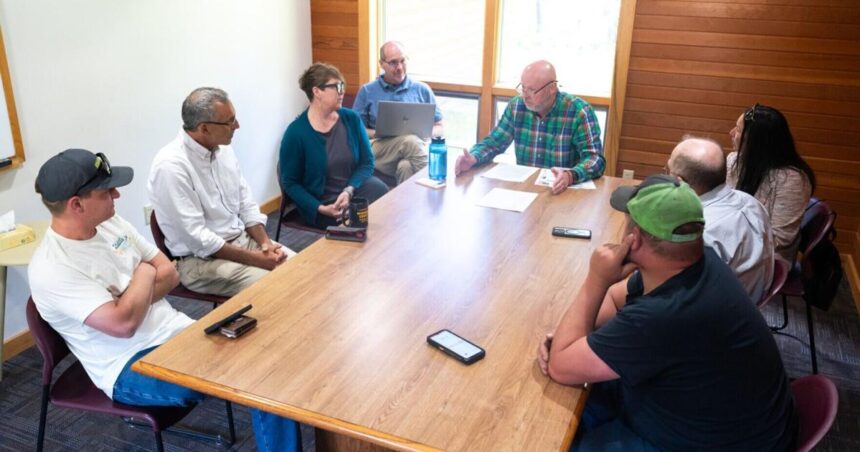Residents of the Swan Valley are looking to establish their own central government in Condon, potentially creating the first new town in Montana since the 1990s.
Three members of the Swan Valley Community Council recently met with a local government expert from Montana State University and the Missoula County commissioners to explore the feasibility of this idea.
While no concrete actions have been taken yet, the community council plans to form a subcommittee in the near future to develop a potential plan.
Condon, located on the edge of Missoula County, is currently unincorporated, lacking its own town government with Missoula County serving as the primary governing body.
Some residents are interested in incorporation to redirect their taxes towards local issues and potentially relax building regulations imposed by the county.
People are also reading…
“We have a lot of great people here right now, but they might not be here in 10 years,” emphasized Swan Valley Community Councilor Ted Morgan, highlighting the need for affordable housing and attracting the next generation of residents willing to contribute to local institutions.
However, Director of MSU’s Local Government Center, Dan Clark, pointed out that the small population and low density of Condon could pose challenges for incorporation under Montana law.
While incorporating could provide greater representation and enable residents to prioritize local government issues, Missoula County officials cautioned that taxes in the region would likely not decrease as every resident is currently taxed at the same rate for countywide services regardless of their city status.
The process of establishing a new town is rare in recent years, with Colstrip being the last town to incorporate in 1994.
Ted Morgan, Swan Valley Community councilor and Republican candidate for House District 92, meets with Missoula County Commissioners at the Seeley Lake Satellite Office on Wednesday, June 19, 2024. The meeting considered a proposal for Condon to become its own self-governing town.
A town for itself
The Condon area is situated between the massive Mission and Swan mountain ranges, with around 300 full-time residents calling it home, along with seasonal residents drawn in by the scenic views.
Approximately 80 miles away from Missoula, Clark suggested that incorporation would enable Condon to streamline its services and foster collaboration among existing agencies in the area.
Most local issues currently fall under Missoula County commissioners’ purview, with considerations needing to balance Condon’s needs against other unincorporated areas such as Seeley Lake or Frenchtown.
Offering his perspective, Clark emphasized the potential value of having local control instead of being governed by a distant entity, highlighting the importance of prioritizing local interests.
Morgan criticized Missoula County for neglecting the area’s infrastructure needs, citing unfixed potholes on county-maintained roads and stringent building permit requirements driving up home construction costs.
As a Republican candidate for House District 92, Morgan sees the benefits of incorporation in bypassing county-only taxes and transitioning to less restrictive state building regulations.
Local business owner and Swan Valley Community Councilor Grace Siloti pointed out how a central government could better serve older residents and address their needs, such as organizing services for the elderly.
Despite the potential advantages, the process of creating a town is complex and time-consuming, requiring a certain population size, petition signature thresholds, and various other criteria to be met.
With uncertainties remaining about the costs and services of a potential town, the Swan Valley Community Council continues to discuss and explore the incorporation process.






